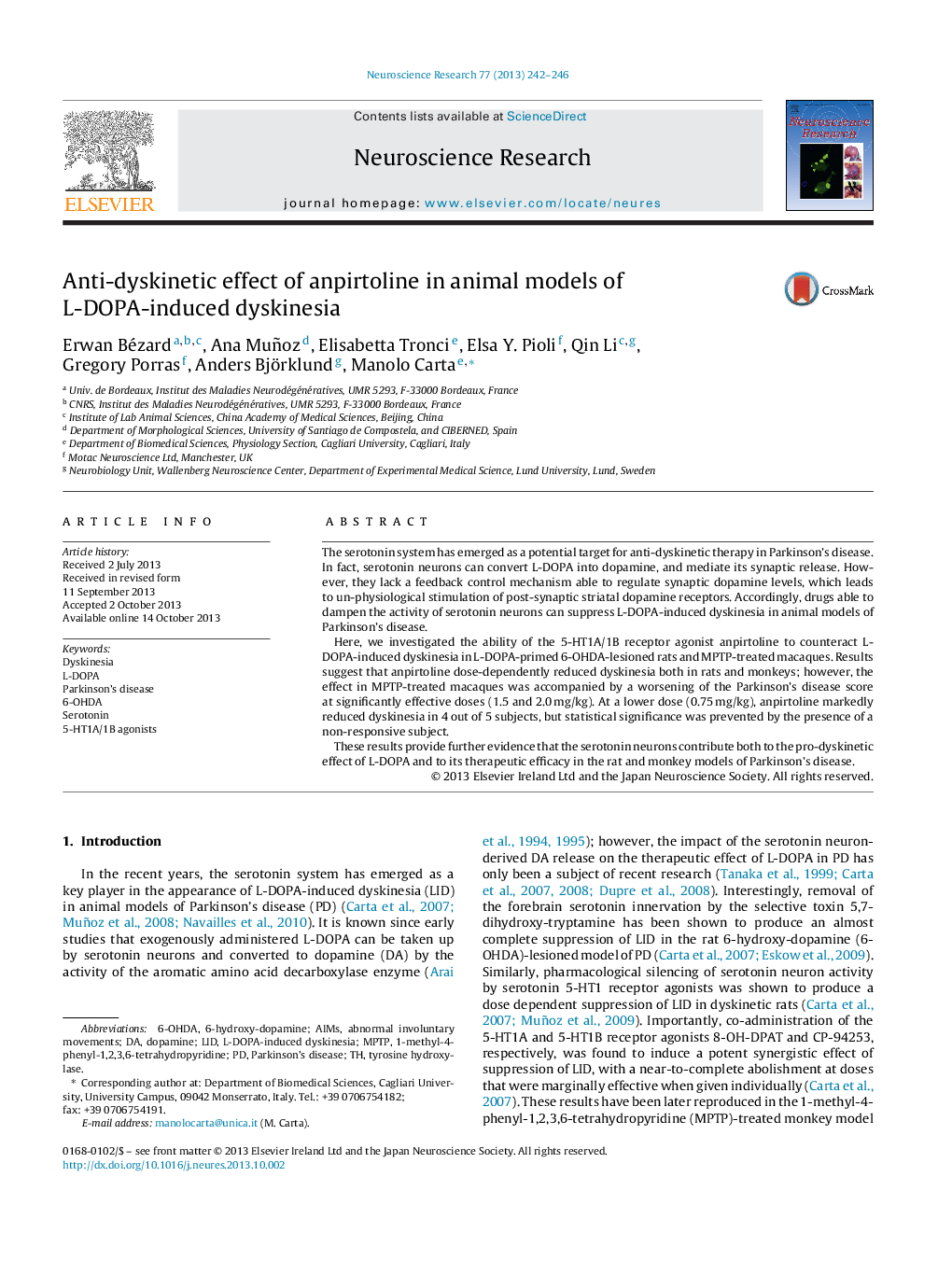| Article ID | Journal | Published Year | Pages | File Type |
|---|---|---|---|---|
| 4351541 | Neuroscience Research | 2013 | 5 Pages |
•Anpirtoline induced potent anti-dyskinetic effect in the rat and monkey models of PD.•Statistically effective doses induced a partial worsening of the L-DOPA effect.•Clinical studies are warranted to explore the effect of 5-HT1 agonists on dyskinesia.
The serotonin system has emerged as a potential target for anti-dyskinetic therapy in Parkinson's disease. In fact, serotonin neurons can convert L-DOPA into dopamine, and mediate its synaptic release. However, they lack a feedback control mechanism able to regulate synaptic dopamine levels, which leads to un-physiological stimulation of post-synaptic striatal dopamine receptors. Accordingly, drugs able to dampen the activity of serotonin neurons can suppress L-DOPA-induced dyskinesia in animal models of Parkinson's disease.Here, we investigated the ability of the 5-HT1A/1B receptor agonist anpirtoline to counteract L-DOPA-induced dyskinesia in L-DOPA-primed 6-OHDA-lesioned rats and MPTP-treated macaques. Results suggest that anpirtoline dose-dependently reduced dyskinesia both in rats and monkeys; however, the effect in MPTP-treated macaques was accompanied by a worsening of the Parkinson's disease score at significantly effective doses (1.5 and 2.0 mg/kg). At a lower dose (0.75 mg/kg), anpirtoline markedly reduced dyskinesia in 4 out of 5 subjects, but statistical significance was prevented by the presence of a non-responsive subject.These results provide further evidence that the serotonin neurons contribute both to the pro-dyskinetic effect of L-DOPA and to its therapeutic efficacy in the rat and monkey models of Parkinson's disease.
